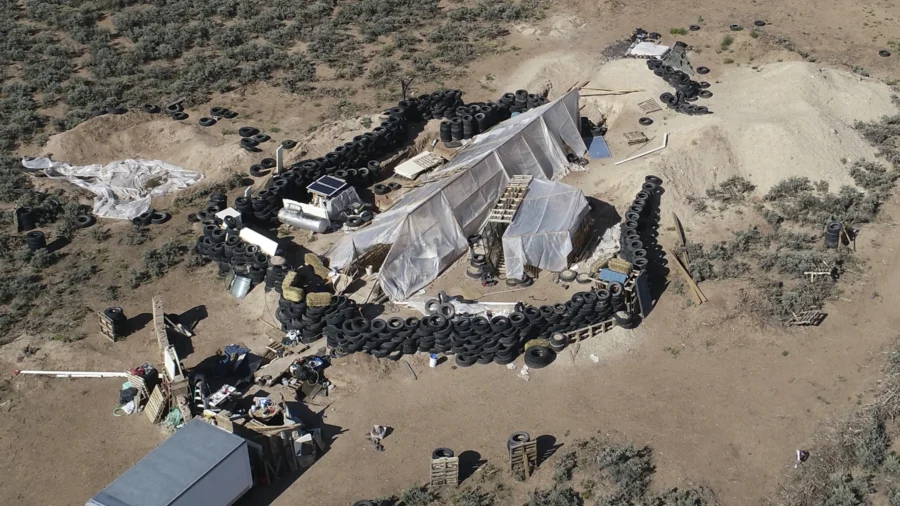ALBUQUERQUE, N.M.—Details about the last moments of Abdul-Ghani Wahhaj’s life were laid out in testimony Wednesday in a trial that centers on accusations of kidnapping and terrorism.
The boy’s father and three other family members, including two of his aunts, were charged following an August 2018 raid of a squalid compound near the Colorado state line as authorities searched for the 3-year-old boy, who had been taken from Georgia without his mother’s permission.
The defendants were living with their 11 hungry children. There was no running water at the encampment, which was encircled by berms of tires with an adjacent shooting range where guns and ammunition were seized.
Prosecutors presented evidence Wednesday that Siraj Ibn Wahhaj and his partner Jany Leveille, a Haitian national, took Abdul-Ghani to resettle in New Mexico, where they performed prayer rituals on the boy and the other children. Ms. Leveille was initially charged with kidnapping and terrorism-related charges, but she agreed to accept a reduced sentence on weapons charges. She has not appeared at the trial.
Siraj Ibn Wahhaj, along with his sisters Hujrah and Subhanah Wahhaj, and the latter’s husband, Lucas Morton, were charged with conspiracy to commit an offense against the United States, among other counts. Mr. Morton and Siraj Ibn Wahhaj were also charged with conspiracy to kill U.S. government personnel.
No one was charged in the boy’s death because the body was too badly decomposed to determine how he died. His body was initially wrapped in plastic and placed under one of the beds in the trailer where the family was living. The body was brought out daily so it could be washed, until the remains were eventually placed in a tunnel on the property.
Ms. Leveille’s son, who was 13 at the time, was asked by prosecutors about the moments before the boy died, the family’s journey to New Mexico, and the prophecy that his mother had relayed to the group.
The teen said his role was to memorize the Quran and teach it to others, while Siraj Ibn Wahhaj’s role was to train the army.
The teen described the firearms and tactical training he and his older brother participated in at the makeshift shooting range. Fearing that they were being surveilled by federal authorities, the group spent months out of sight under a tarp, in a camper trailer and underground in tunnels they had dug. They used a bucket for the bathroom, and Mr. Morton was able to get food from a food bank miles away.
The teen, who now lives with an aunt and cousins in New York, testified that life at the compound was “terrible.”
“I was stuck in a hole that I couldn’t get out of,” he said.
The teen spent more than three hours on the stand, with defense attorneys scheduled to question him Thursday. Two other children who lived at the compound also were expected to testify.
Defense attorneys for Wahhaj’s sisters have argued that the terrorism charges are largely based on a fantastical diary written by Ms. Leveille about her belief that Abdul-Ghani would be resurrected and that the family’s efforts to secure basic shelter in a harsh, remote environment were being misrepresented by prosecutors.
Prosecutors showed numerous photos of the compound and videos of some of the firearm exercises while Ms. Leveille’s son was on the stand. The teen testified that the group had to stay hidden because Abdul-Ghani had been reported missing.
Early on, authorities who were searching for the boy had visited the home where they were staying in Georgia. The teen said it was soon after that his mother, stepfather, and the others gathered a few belongings and began the caravan to New Mexico, where Mr. Morton owned land.
The teen said his mother had received a message from Allah that they had to move quickly. The teen was told to pack seven outfits. He also took his game console. Everything else was left behind.
A prosecutor asked about the mood the night they left Georgia.
“It felt dark and rushed and surreal,” the teen testified.


